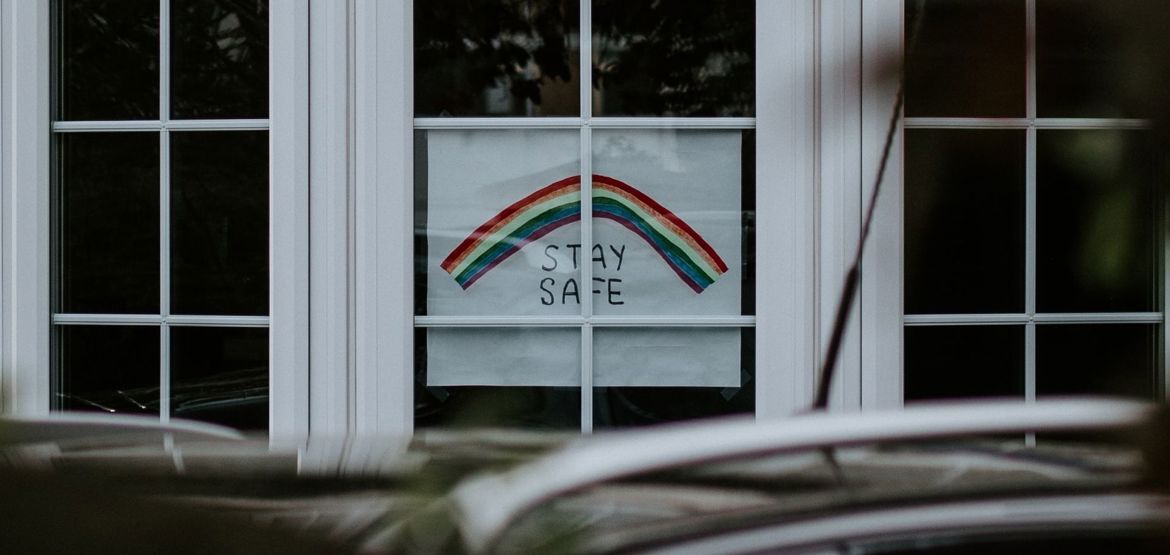Drinkaware reflects on a year of intermittent lockdowns
We look back on a year in intermittent lockdown and its impact on the nation's drinking habits

Today (23 March, 2021) marks one year since Prime Minister Boris Johnson asked the nation to stay at home, protect the NHS and save lives.
Here, independent alcohol education charity, Drinkaware, looks back on its research around drinking habits during lockdown, in particular on the public’s health and wellbeing.
Prior to the national announcement, when recommendations had been made by the government for the public to work at home if possible, Drinkaware began discussing the potential impact that this would have on the public’s drinking habits. By mid-May most of the nation had been at home for nearly two months, and Drinkaware used its platform to ask employers to prioritise staff health and wellbeing. Notably, to use every opportunity to make sure their staff did not become disconnected throughout the extended furlough period. This call to action was backed up by Drinkaware’s own research, which found that one in three (36%) furloughed workers were drinking more since lockdown began. And, of all those who were working from home because of lockdown, one in four (26%) people said they were drinking more.[1]
In July, the charity conducted more research to continue its assessment of drinking habits in lockdown and, again, our findings were concerning. Nearly two in five (38%) of people on furlough, and a third (33%) of parents with at least one child under 18, were drinking more alcohol than they were before the start of lockdown. This was significantly higher than the national average where, overall, more than a fifth (22%) of people in the UK – around 11.7 million – reported drinking more since the lockdown began. It also highlighted that around three in ten young adults aged 18 to 34 (29%) were drinking at higher levels than when lockdown began. [2]
As it launched its annual state-of-the-nation report into UK drinking in November, the charity called on government and UK employers again, asking them to urgently consider the pandemic’s effect on drinking behaviours.. The monitor showed that more than a quarter of adult drinkers (26%) drank more alcohol during early lockdown*. And while many people began to reduce their drinking, one in 10 drinkers – the equivalent of 4.6 million – drank more than their normal throughout the overall lockdown period**, even as restrictions eased.[3]
In December, Drinkaware went to the public for a final time in 2020. Here,, the charity found a growing sense of awareness of harmful drinking. But more than half (56%) of people who already drink at higher risk levels (more than 35 units a week for women and more than 50 for men) reported drinking more than they would usually. And 39% of those who drink at increasing risk levels (between 14 and 35 units a week for women, 14 and 50 for men) reported drinking more. Overall, 16% of UK adults reported drinking more alcohol than usual since March 2020, with 19% drinking less. A quarter (26%) of the 4,003 UK adults surveyed at the start of December believed they should cut down on how much they drink.[4]
Drinkaware Chief Executive Elaine Hindal reflects: “Up and down the country, we have grappled with the monumental change to our daily working lives that lockdown restrictions caused.
“From our research we know that although some people have drunk less during the pandemic, many individuals already drinking at a harmful level have continued to do so, or even begun drinking more. When it comes to talking about public health, recognising the effect that this national upheaval has had on the drinking habits is vital.
“The important thing for individuals to remember is that, if you or someone you care about is drinking more than usual at the moment, it’s not too late to cut down or find support to help you. Understanding what triggers you to drink more can help you avoid reaching for alcohol. Sticking to the Chief Medical Officer’s recommendations for low risk drinking guidelines of no more than 14 units a week – that’s about six glasses of wine or six pints of beer – is a good place to start to help you keep track.”
Drinkaware has an the Drinking Check that can help identify whether someone should be concerned about how much they drink.
About the research:
* March to June
** March to August
Drinkaware is an independent charity which aims to reduce alcohol-related harm by helping people make better choices about their drinking. We achieve this by providing impartial, evidence-based information, advice and practical resources; raising awareness of alcohol and its harms and working collaboratively with partners. www.drinkaware.co.uk / @drinkaware
[1] Opinium conducted the research on behalf of Drinkaware, surveying 2,001 nationally representative UK adults aged 18 and over from the 5th to the 7th of May 2020.
[2] Opinium conducted the research on behalf of Drinkaware, surveying 2,001 nationally representative UK adults aged 18 and over from the 3 to 7 July 2020.
[3] All figures are from YouGov Plc. Total sample size was 9,046 UK adults. Fieldwork was undertaken between 27 August to 15 September 2020. The figures have been weighted and are representative of all UK adults (aged 18+).
[4] All figures are from Opinium. Total sample size was 4,003 UK adults. Fieldwork was undertaken between 9 and 10 December 2020. The figures have been weighted and are representative of all UK adults (aged 18+).